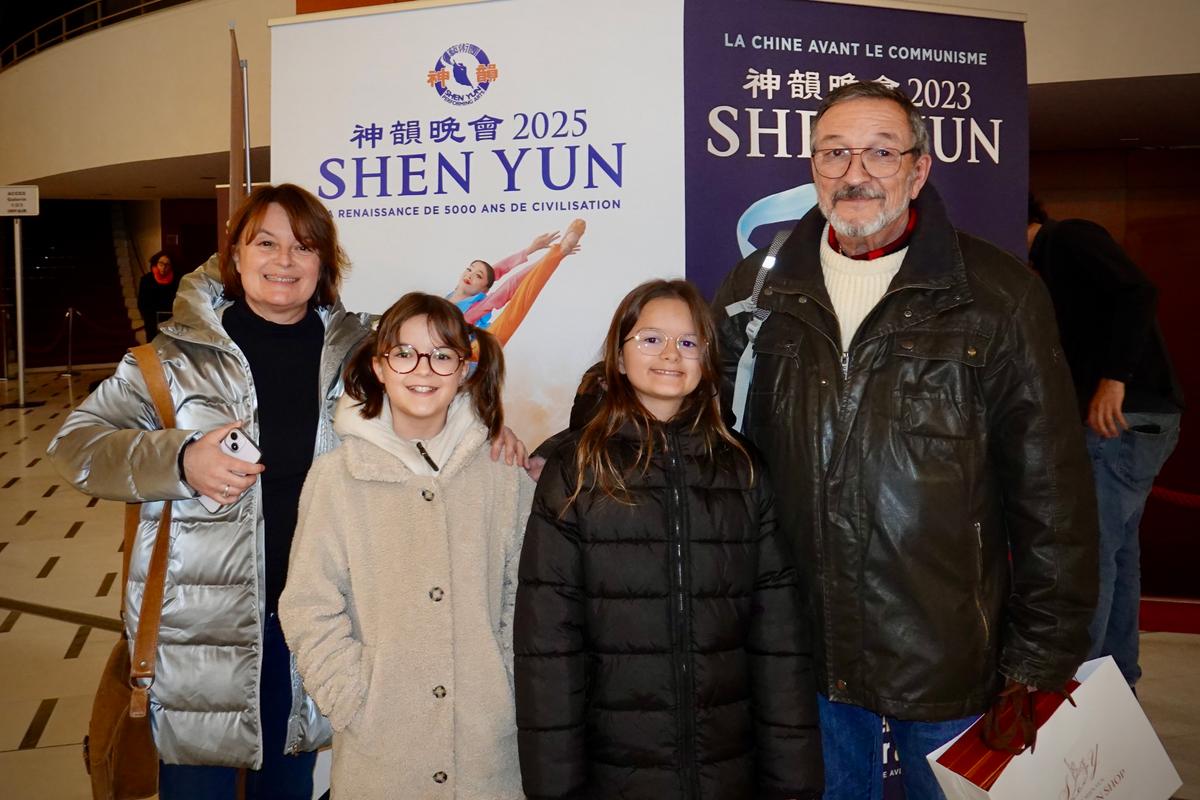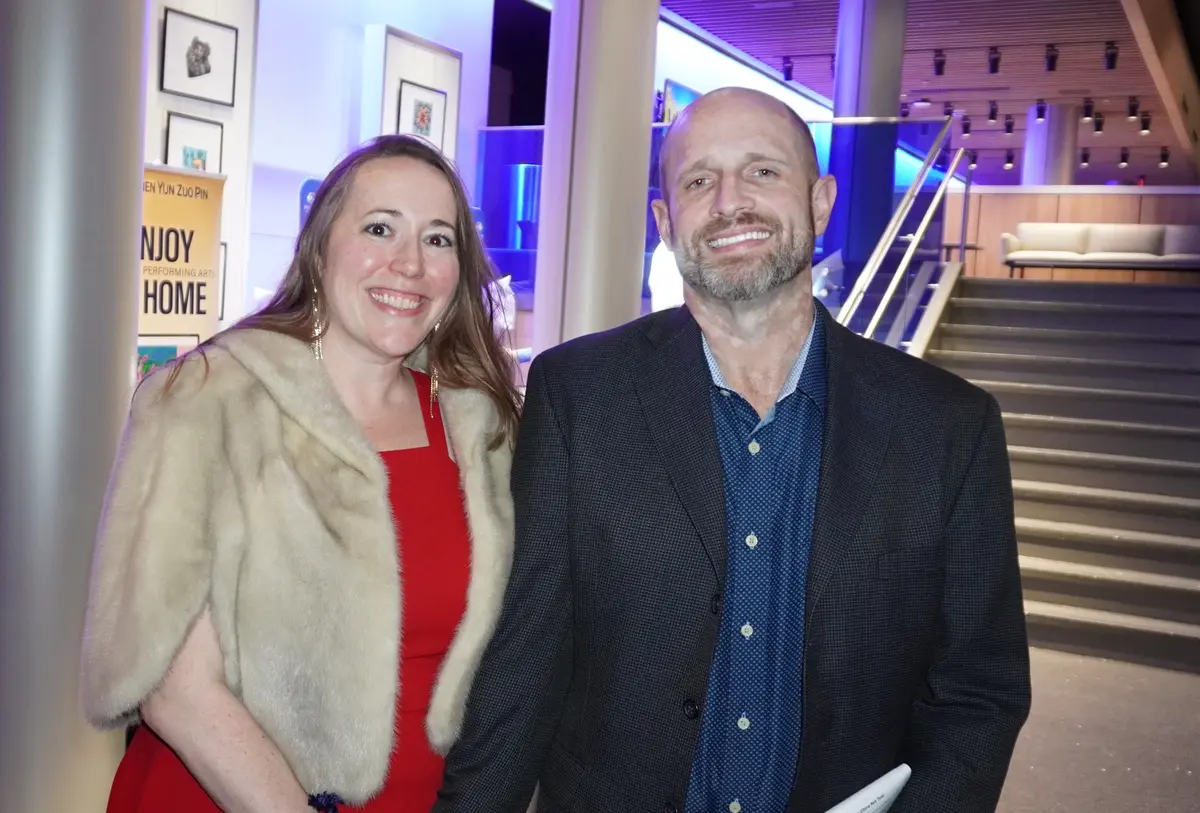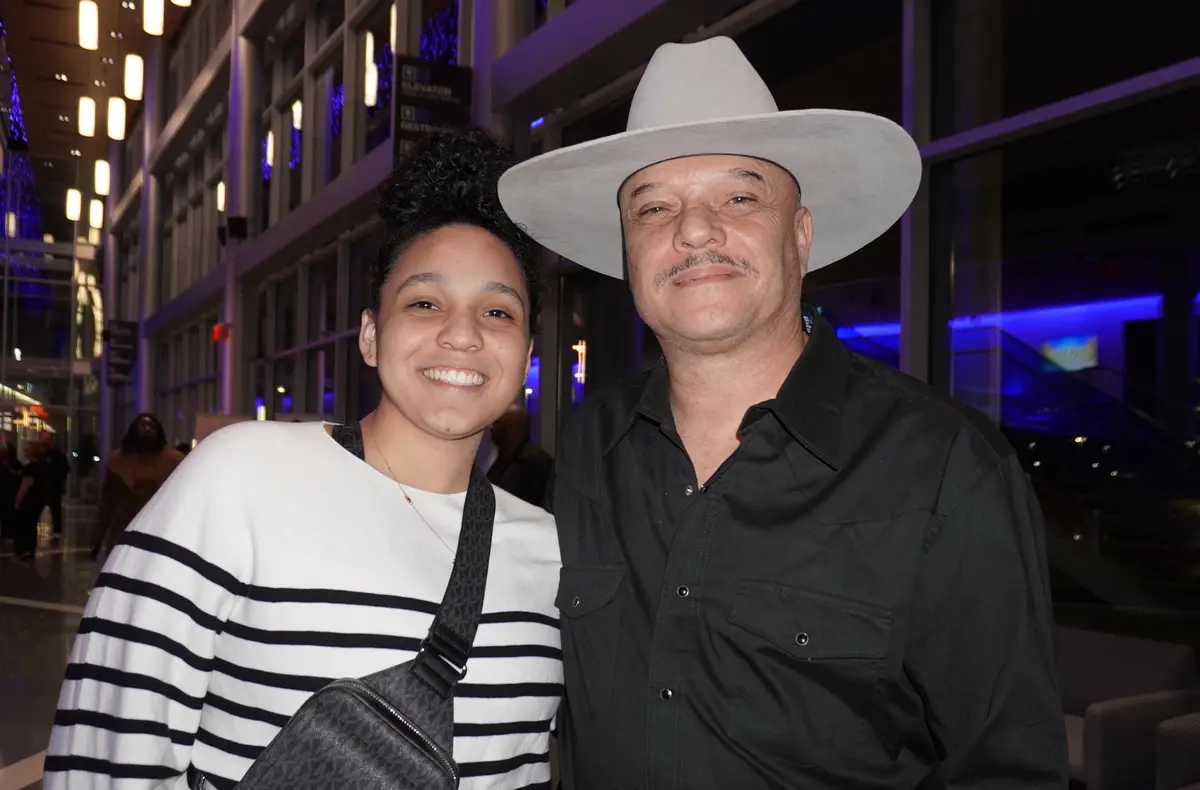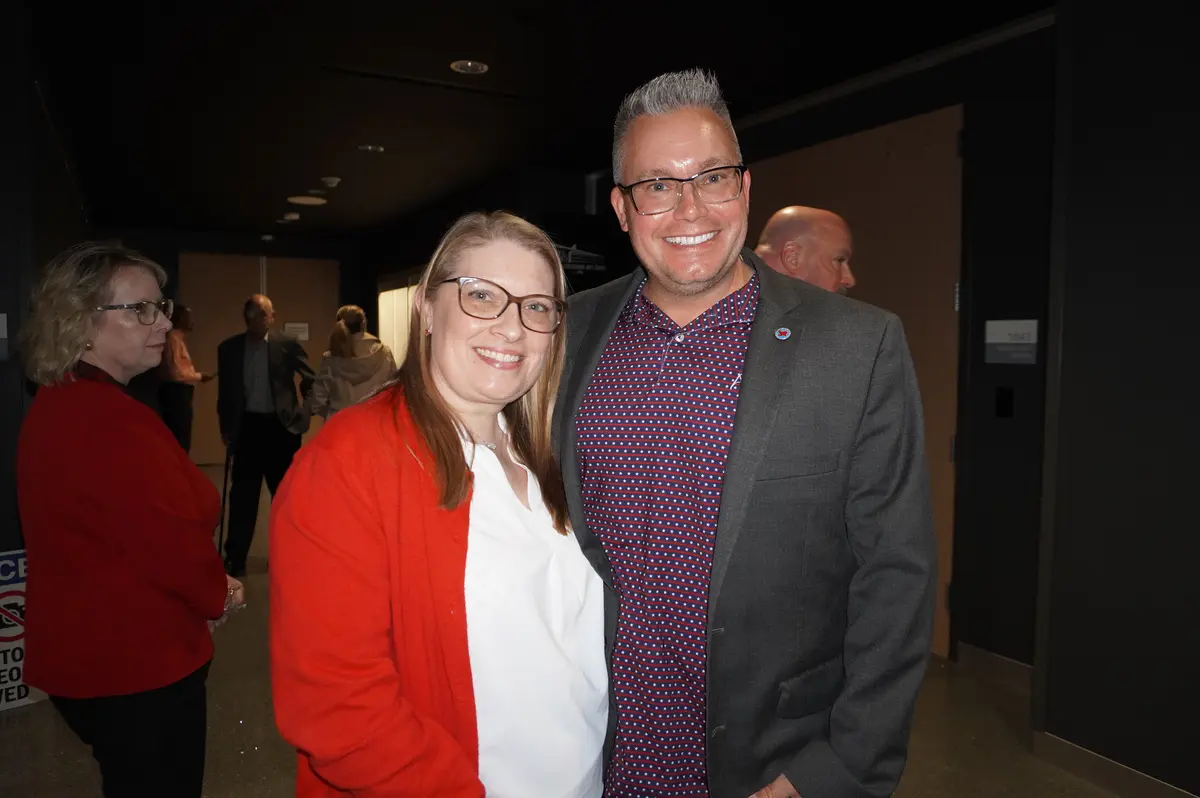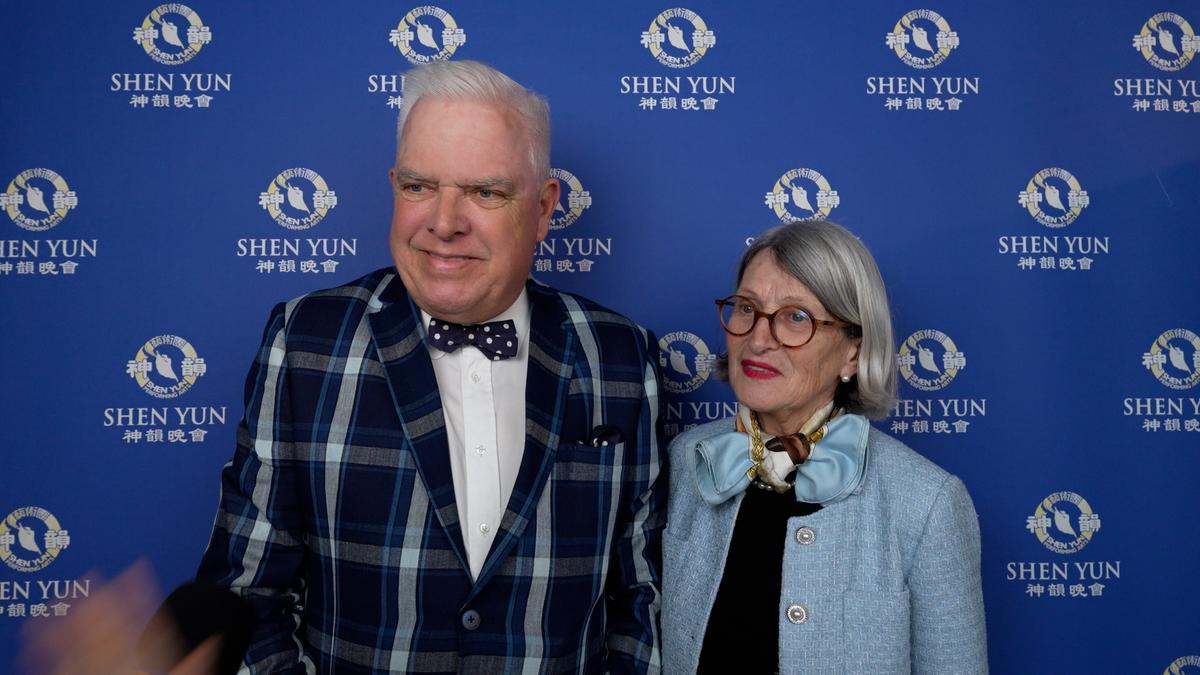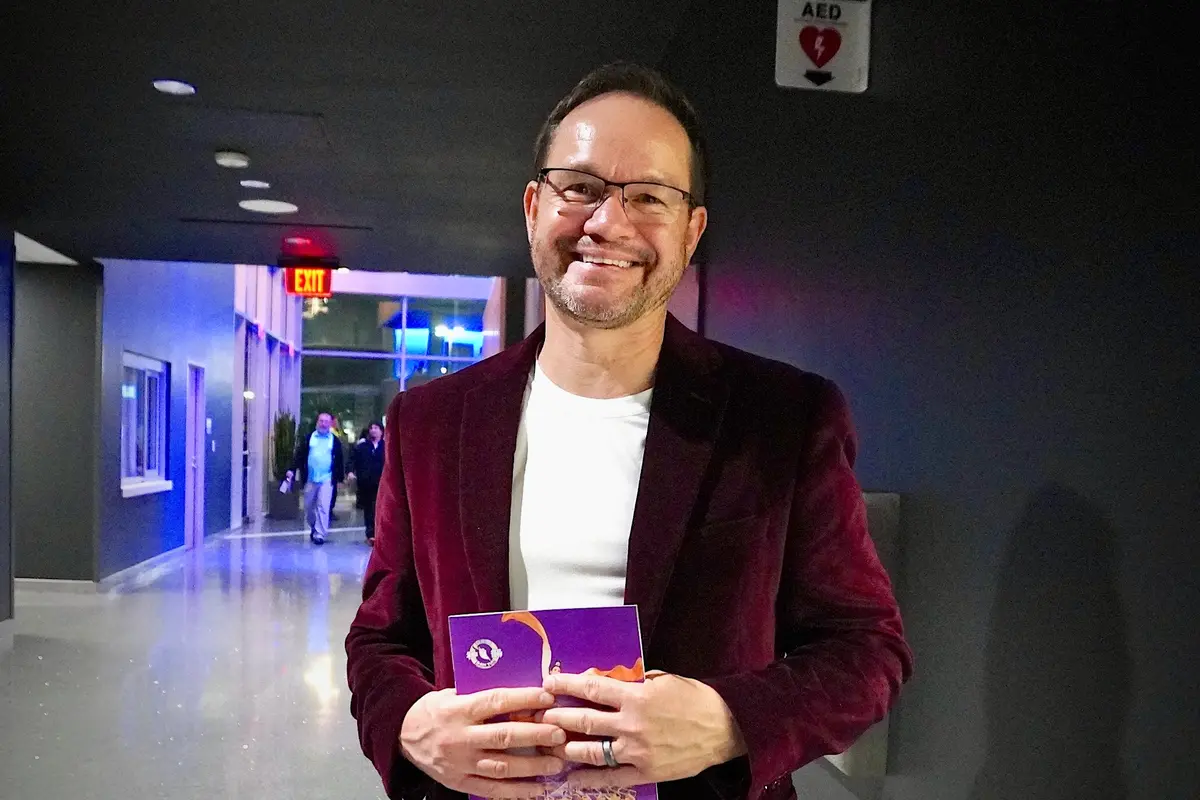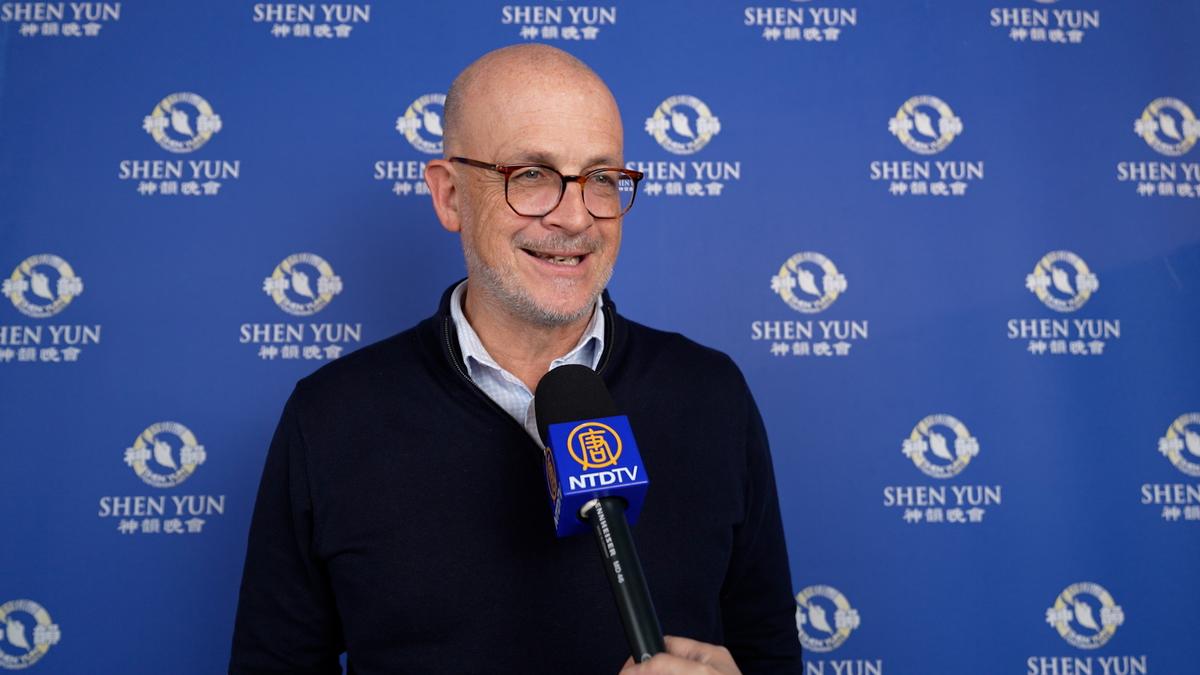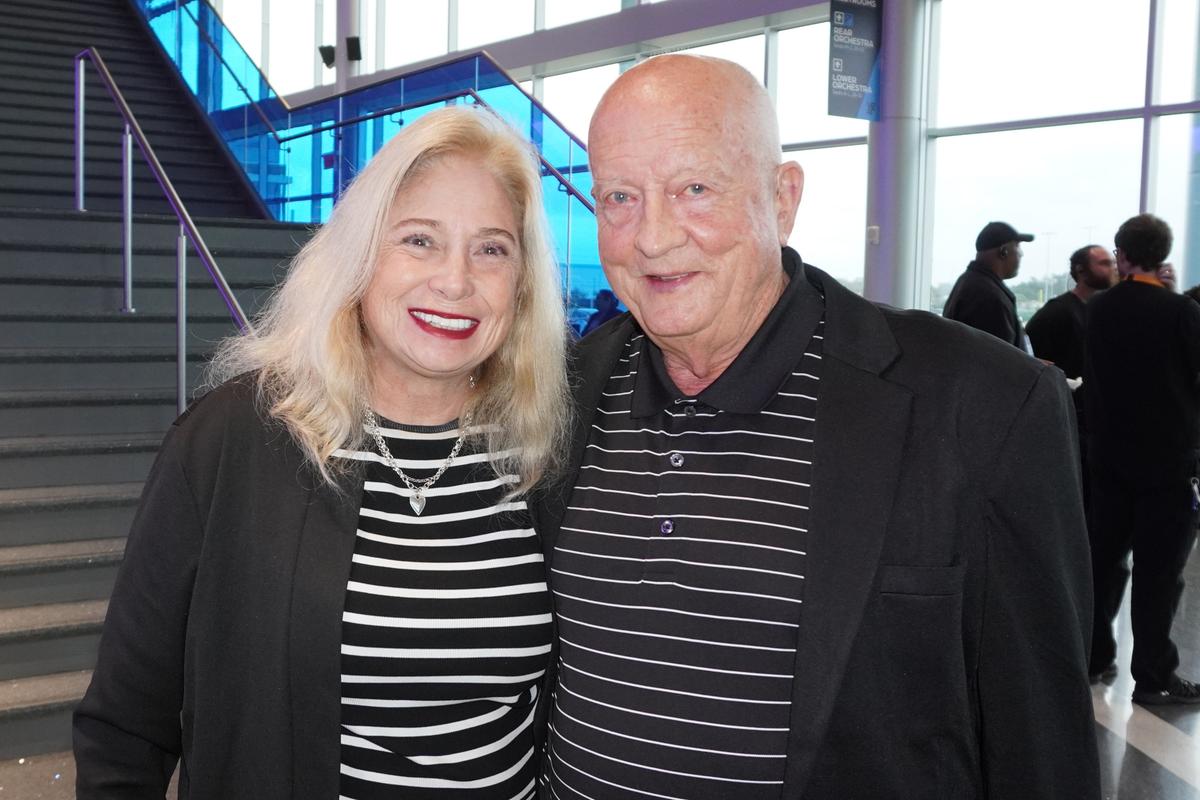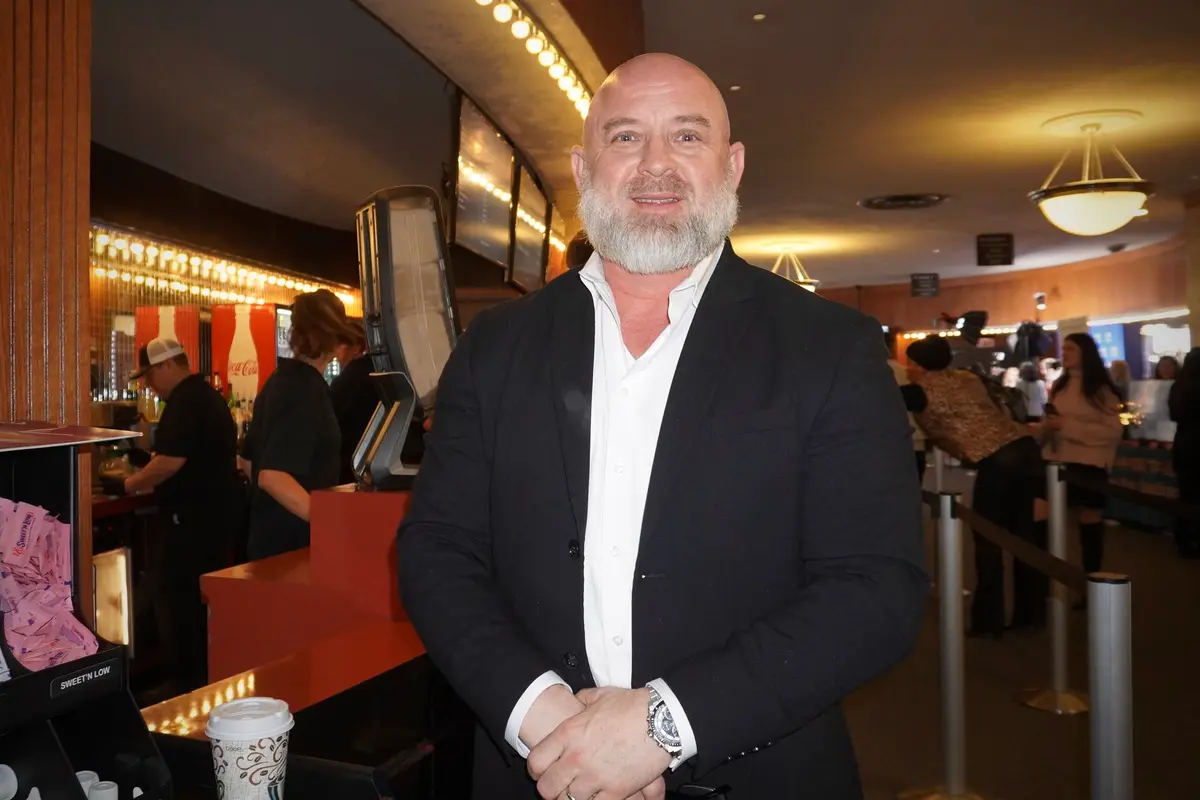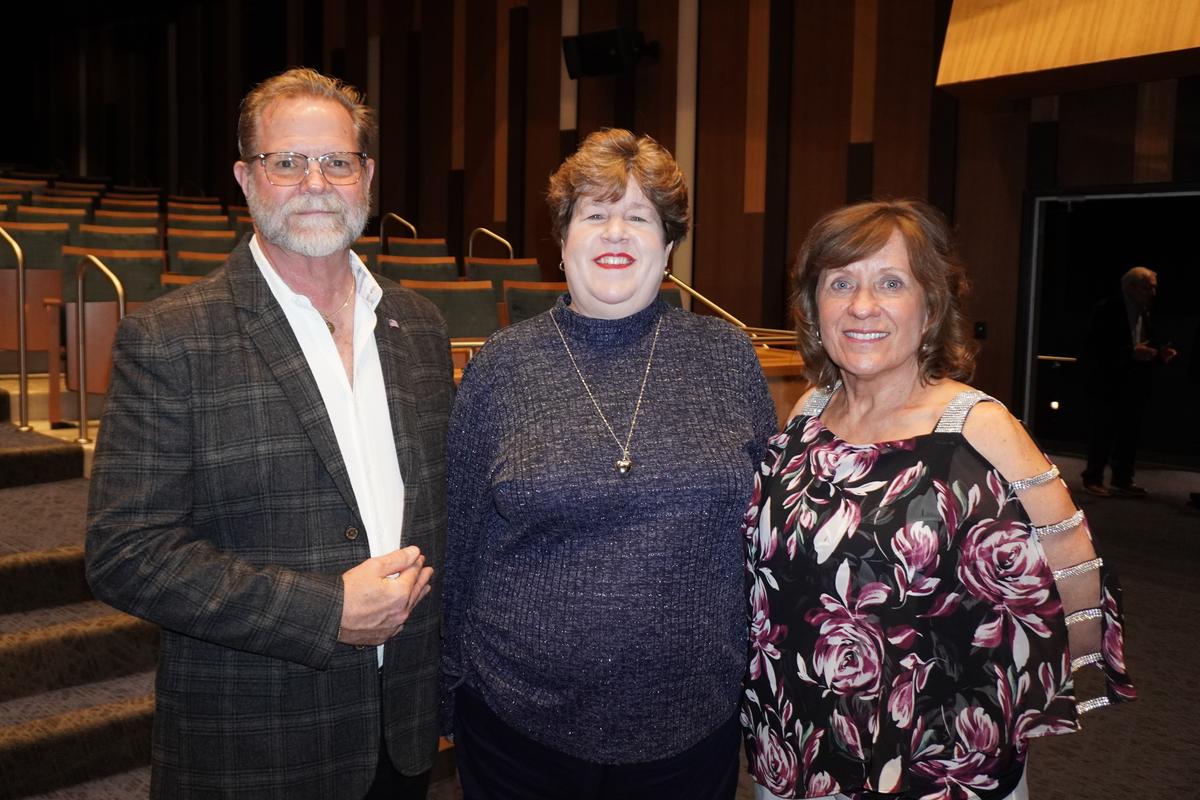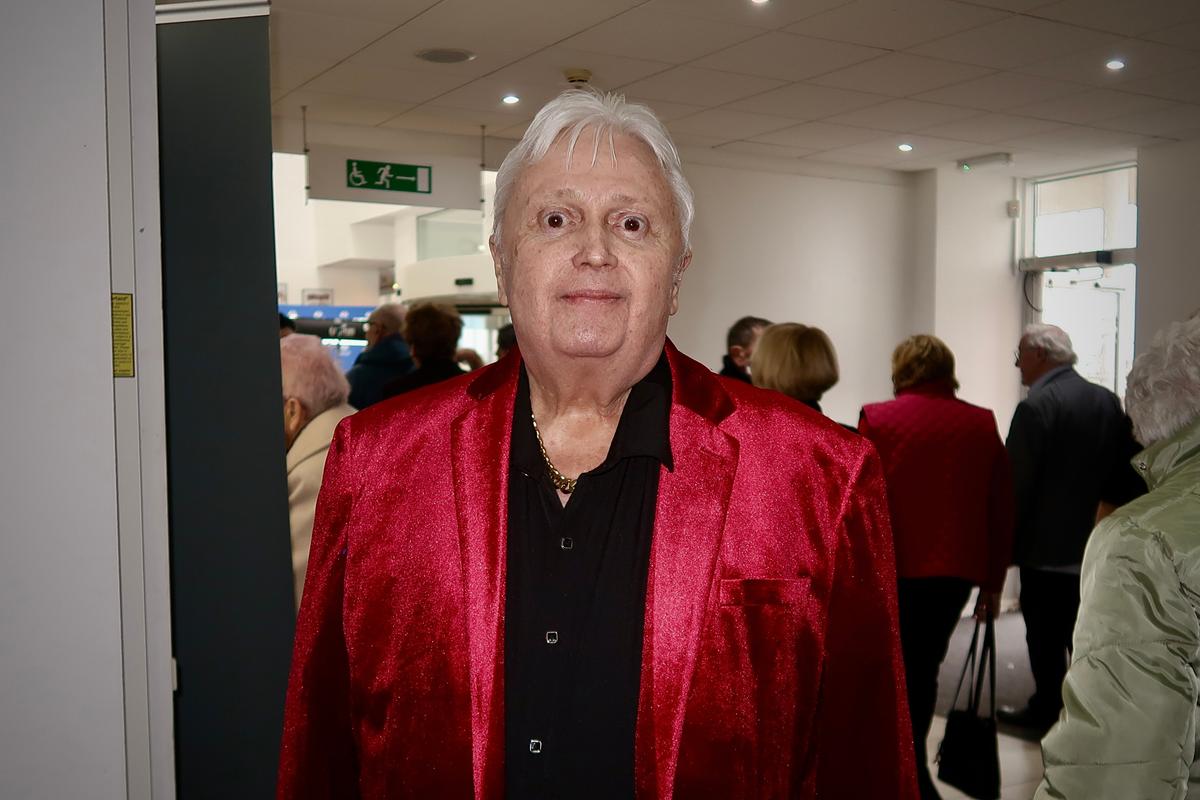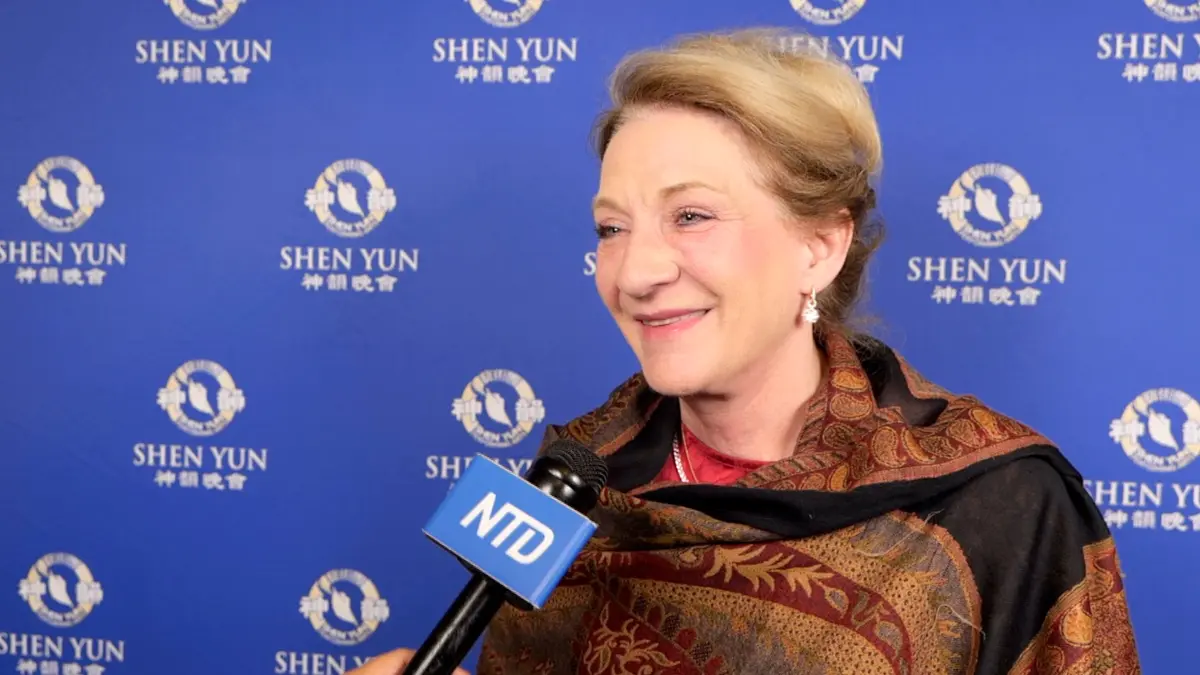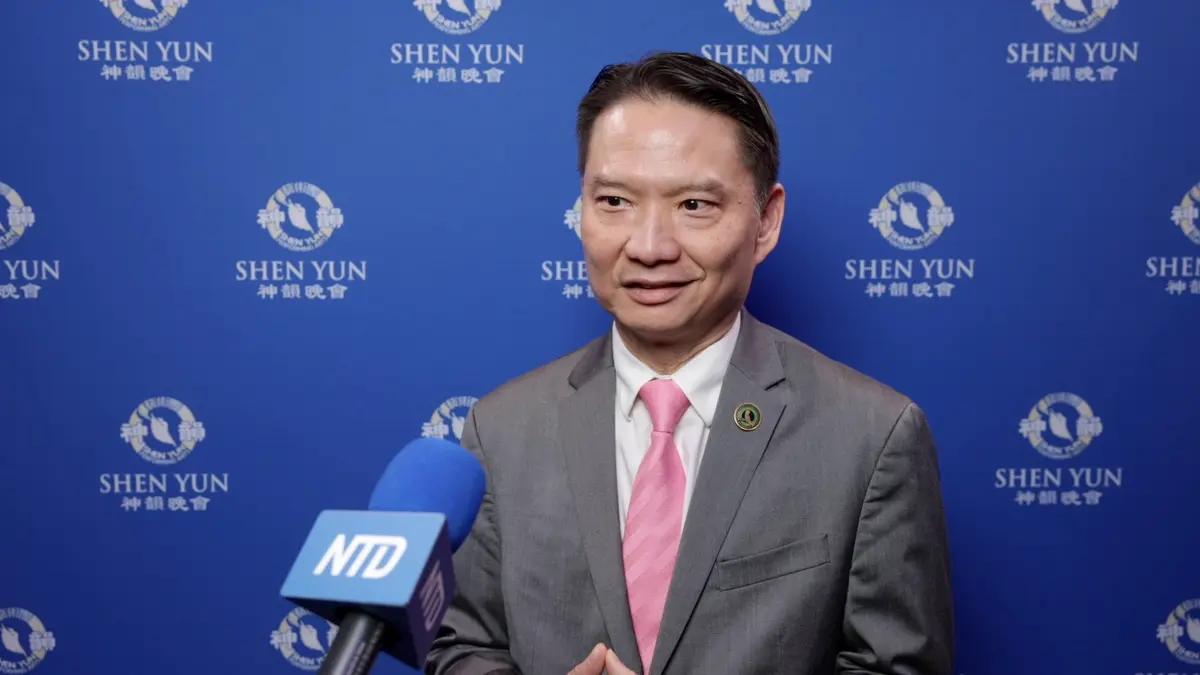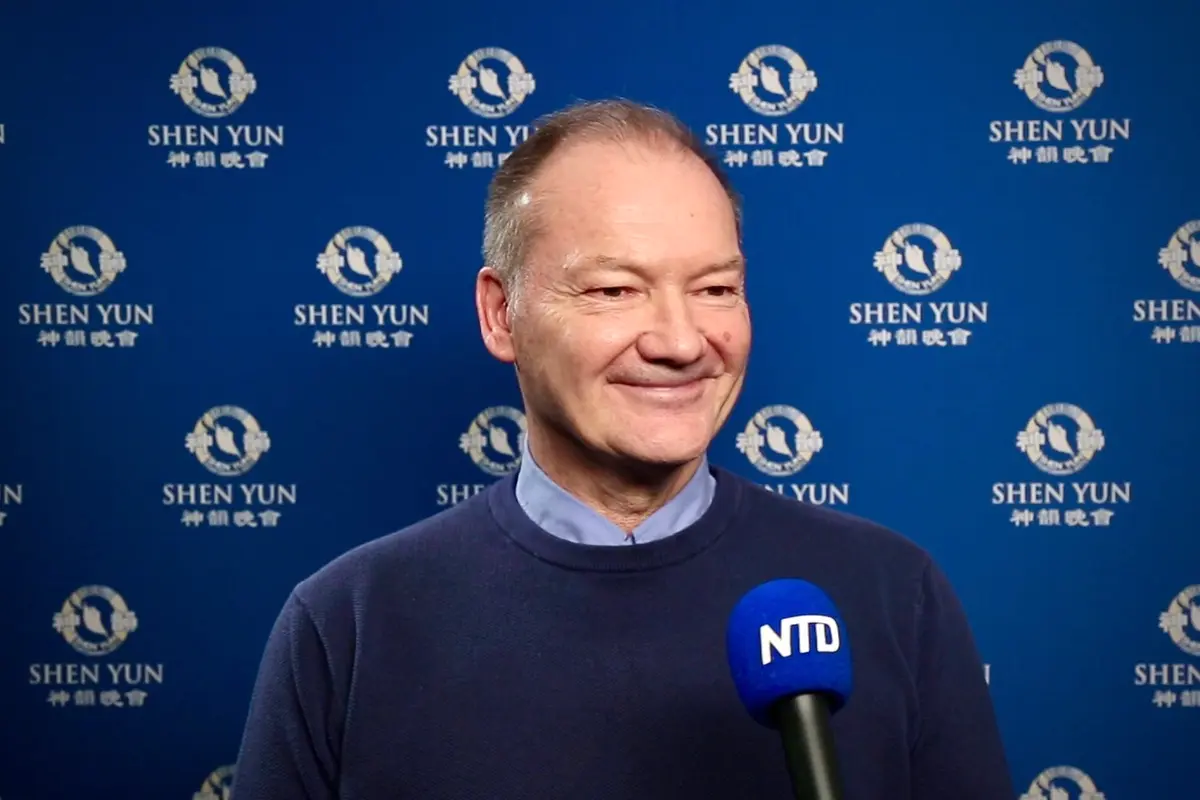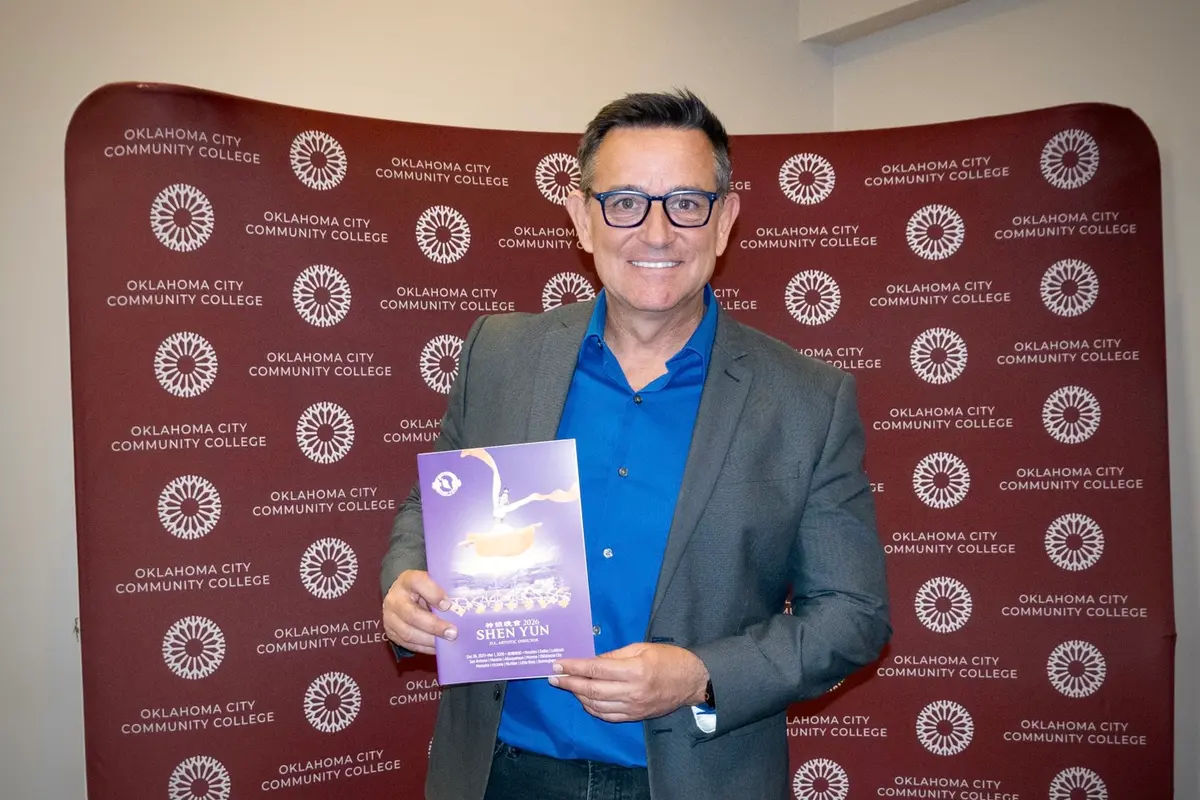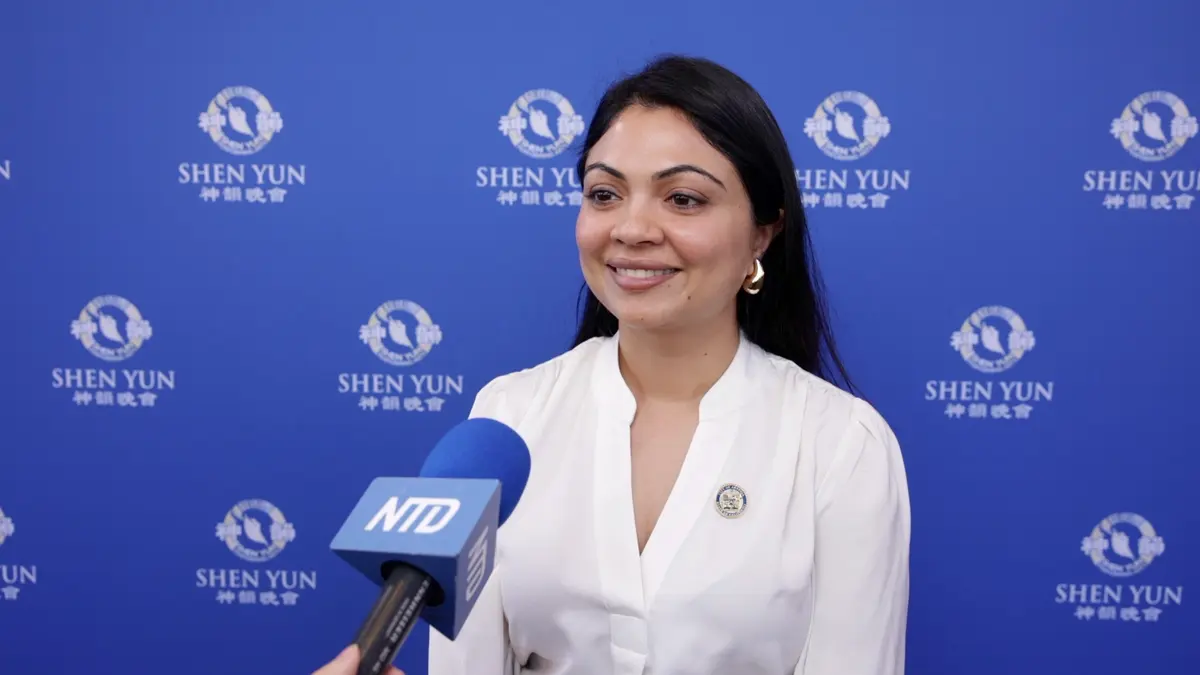AIX-EN-PROVENCE, France—On Jan. 3, aircraft commander Jean-Marie Bensa brought his family to enjoy Shen Yun’s third performance at the Grand Theatre de Provence.
“There’s something that was said in the lyrics of both songs—you have to keep your traditions to distance yourself from dogmatism and atheism—bravo, bravo, bravo,” Mrs. Bensa said.
The New York-based Shen Yun Performing Arts was founded in 2006 by elite Chinese artists who had fled the persecution of the communist party.
For 5,000 years, China’s civilization flourished under the shared belief that the divine will bless those who uphold traditional moral values. Tragically, within just a few decades of the communist party’s violent takeover, these beliefs were erased and replaced with atheism.
The Bensa family couldn’t agree more with this mission.
“We really like the reference to the divine because it’s true. When you’re an airline pilot like us, and you fly all over the world, [you know] dogmatism is everywhere. It’s pretty bad,” Mr. Bensa said.
“The divine, the truth, and human beings—that’s what’s most important.”
He’s very happy that Shen Yun artists are working hard to bring back traditional culture.
“For me, China has always been one of the oldest civilizations, and I’ve visited many sites there. [Shen Yun] depicts the old China, one from 5,000 years ago.”
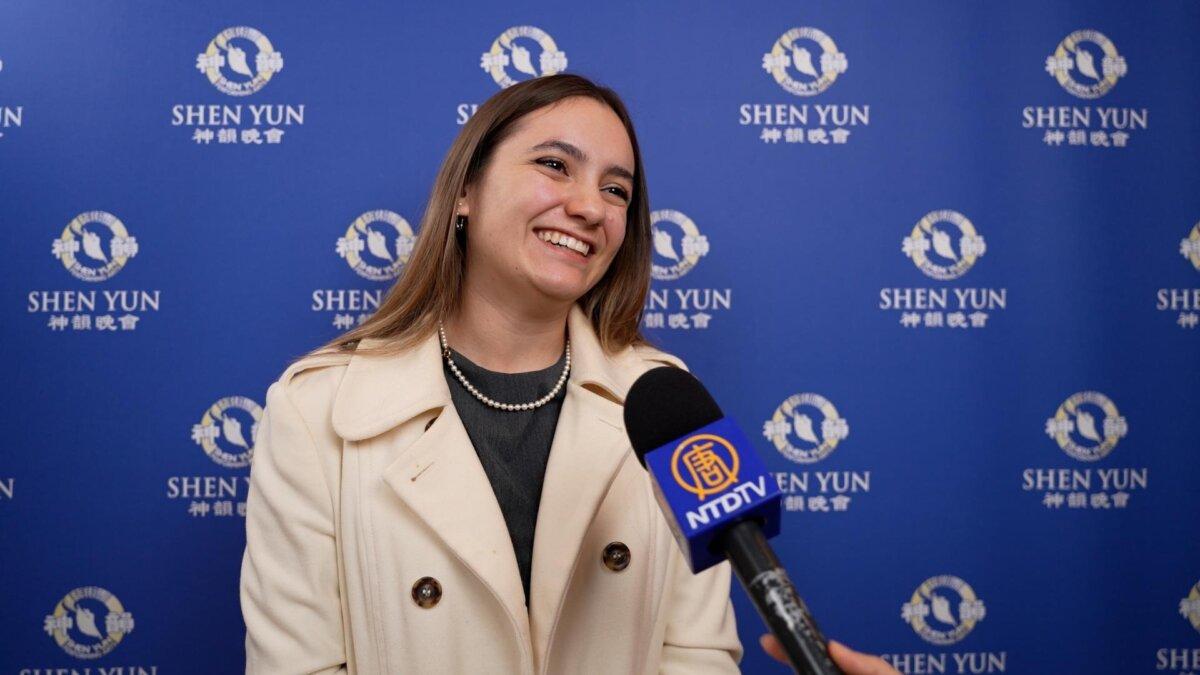
Also in attendance was Marine Enora, a 21-year-old professional dancer pursuing her teaching license. She, too, thoroughly enjoyed the performance.
“I thought the show was splendid in terms of the staging, sets, and costumes. The dancers were extraordinary, and their technique was incredible. I really liked it. Everything was perfect,” she exclaimed.
Ms. Enora was also amazed by the way the artists expressed their emotions and delivered their message through dance. She loved how they interacted with the audience, describing it as “full of a childish innocence.”
“I find that there’s a certain amount of spirituality in their dance—from their movements to their way of being, how they interpret certain roles. I also find it very interesting that they’re highlighting societal issues in the [story-based] dances. It touched me a lot.”
“They do have some principal dancers, but we see that the dances are not necessarily solos or duets—it’s more of a team effort,” she recounted.
“That’s what’s so beautiful about [Shen Yun] you don’t just focus on one person; everyone plays an important role in the choreography and the show.”
While watching the show, Ms. Enora said she became aware of the importance of preserving traditional culture and that “certain things in society can really influence us but not necessarily in a positive way.”
“[Shen Yun] allowed me to ask myself some fundamental questions that are very thought-provoking and helpful. In France, traditions are disappearing very quickly. That’s very upsetting because I’m part of a generation where traditions are no longer respected. It’s a real shame,” she said.
“I think Shen Yun is a show that can bring a lot of kindness to the world. It prompts us to rethink our lives—who we are, and what values we want to uphold—a lot of things like that.”

